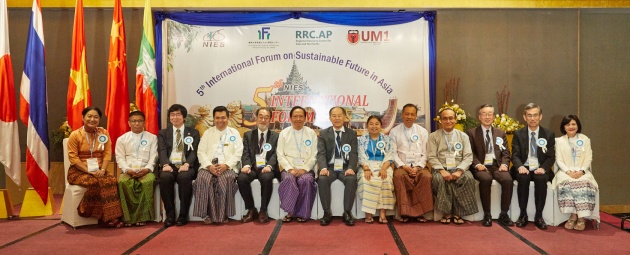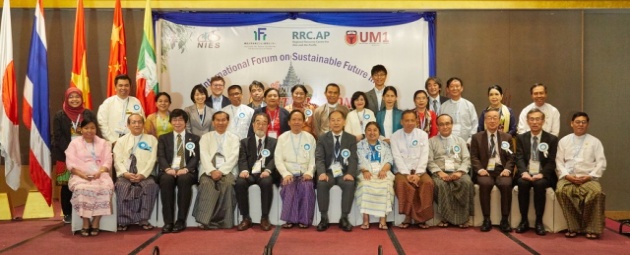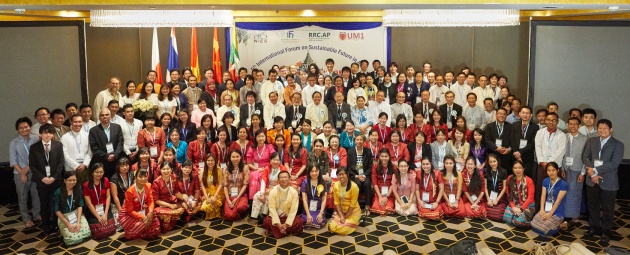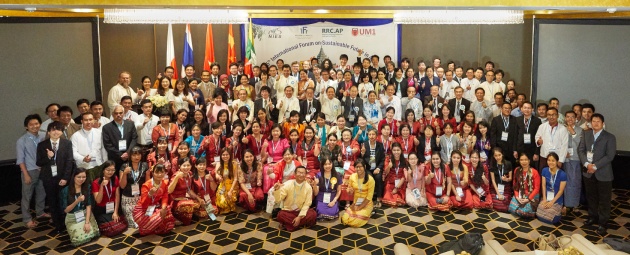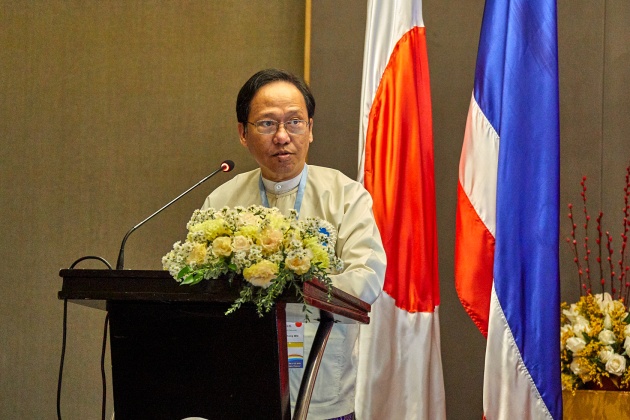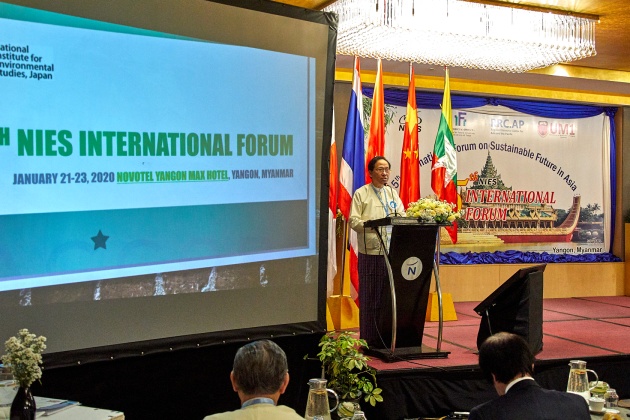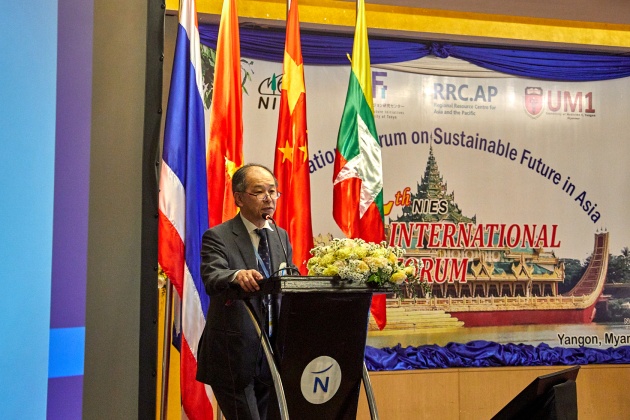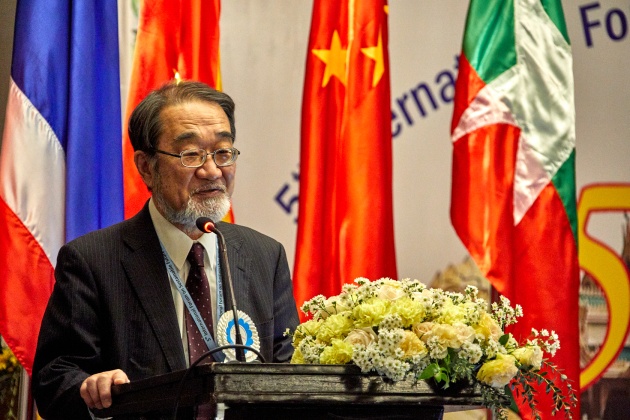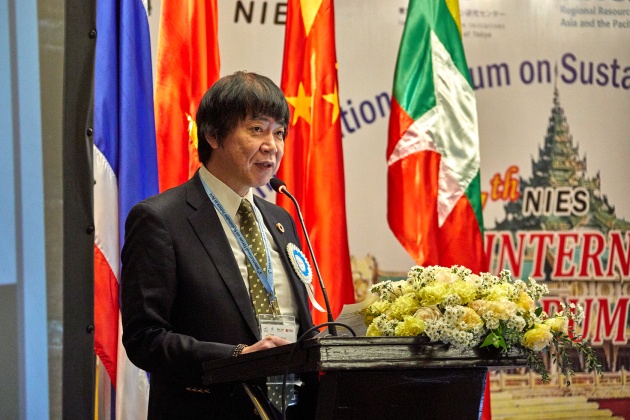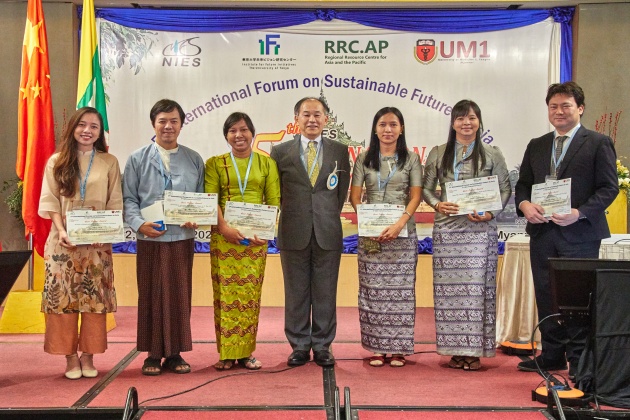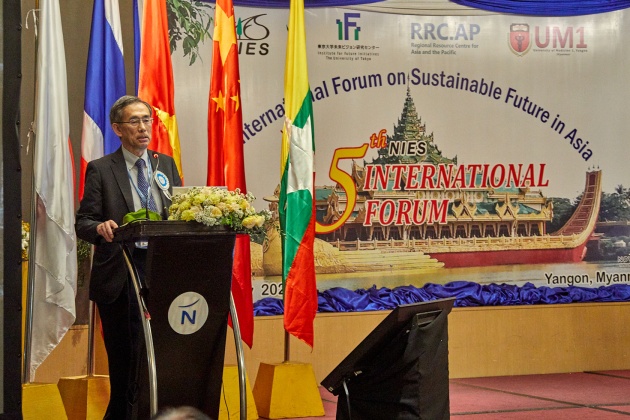5th International Forum on Sustainable Future in Asia 5th NIES International Forum
January 21-22, 2020 Novotel Yangon Max Hotel, Yangon, Myanmar
- Top
- About
- Program
- Speakers
- Presentations
- Posters
- Public Talk
- Report
Thank you very much for your participation and contribution to the 5th International Forum on Sustainable Future in Asia/5th NIES International Forum. The Forum concluded with a success with 29 presentations, 54 poster presentations and approximately 160 participants. We look forward to collaborating with you again for the upcoming International Forum.
| Date | January 21-22, 2020 |
|---|---|
| Venue | Novotel Yangon Max Hotel, Yangon, Myanmar |
| Related information | Public talk on January 23 at the same venue |
| Registration | Free. |
| Proceedings | IOP Conf. Series: Earth and Environmental Science, Vol. 496, 2020 |
| Organizer | National Institute for Environmental Studies (NIES - Japan) |
| Co-organizers | Institute for Future Initiatives, The University of Tokyo (IFI, UTokyo - Japan) Regional Resource Centre for Asia and the Pacific, Asian Institute of Technology (AIT RRC.AP -Thailand) University of Medicine 1, Yangon (UM1 - Myanmar) |
Contact
National Institute for Environmental Studies (NIES)
16-2 Onogawa, Tsukuba, Ibaraki 305-8506 JAPAN
E-mail: forum_2020@nies.go.jp
Theme
Fostering a Healthy and Sustainable Environment to Achieve the Sustainable Development Goals
Background and Objectives
The National Institute for Environmental Studies (NIES) is undertaking a broad range of environmental research toward the realization of sustainable societies. To disseminate the outcomes of this research at NIES and to bridge the gaps between science and policy, in 2016 NIES initiated the Forum on Sustainable Future in Asia in collaboration with the University of Tokyo and the Asian Institute of Technology. The 5th International Forum on Sustainable Future in Asia will be held in Myanmar on January 21 and 22, 2020. The aim of the forum is to create a foundation for a consortium of relevant institutions and governments in the region that will facilitate the exchange of knowledge gained through research and catalyze dialogue at the policy–research interface in the spheres of environmental management and sustainable development in Asia.
Session Overview
1. Current Environmental Issues, Health Problems, and Research Challenges in Asian Countries: Toward Ensuring Healthy Lives and Well-being for Generations to Come
Environmental pollution is one of the most serious global challenges today. In this session, we will focus on major environmental issues, such as air pollution and exposure to pesticides and heavy metals, and the effects of exposure to these environmental pollutants on children and the next generation. Air pollution has become a major health problem in many Asian countries due to rapid urbanization and industrialization, and prompt actions are needed to improve air quality. Pesticides are potentially toxic to humans and can have both acute and chronic health effects. Many harmful pesticides have been banned from agricultural use in developed countries but are still used in many developing countries in Asia. Heavy metals such as lead, arsenic, mercury, cadmium, and copper contained in agricultural and industrial products used in Asian countries pose a potential risk to human health via dietary exposure. Exposure to these environmental pollutants during the developmental period can cause adverse health effects in later life. Moreover, recently, marine litter and microplastics are one of the fastest growing environmental challenges and seriously threat to the health of our oceans. In this session, we will share our research findings on these environmental issues and introduce novel assessment and screening methods used in environmental health research. We will also discuss the creation of an environmental research network among Asian countries.

2. Beyond Win-Win: Synergetic Strategies for Sustainable Development Goals on Combating Climate Change and Protecting Healthy Ecosystems
Sustainable development goals (SDGs) set out common global challenges, including specific values, deadlines, and means. United Nation member states have pledged to achieve 17 SDGs by 2030, including that the number of poor in each country will be reduced by 50% of present levels (Goal 1), malnutrition in all conditions will be resolved (Goal 2), and people will have universal and equitable access to safe and affordable drinking water (Goal 3). However, there are various barriers that must be overcome to reach these SDGs. Furthermore, SDGs are interrelated and some have synergies (co-benefits) while others require trade-offs and present dilemmas (or trilemmas). In this session, we will introduce projects being conducted in Asian countries that aim to achieve a win-win situation by synergistically solving problems related to multiple SDGs regarding climate change countermeasures and ecosystem conservation. Based on the research cases, we will also discuss synergistic strategies needed to overcome the barriers and solve multiple issues such as trade-offs and trilemmas. Throughout this session, we will focus on systemic sustainability in SDG activities and discuss practical social restructuring strategies for the future well-being of Asian countries.
3. Integrative Approach for Strategic Design toward Sustainable Development Goals in Asia
Asian countries as well as Global society are faced with the transitional period from industrialization to decarbonization. The newly coming transition period needs to provide resilience against the rapidly growing risks of climate change while it transforms the existing cities and industries into smart and sustainable manner of efficient use and protection of environmental resources. As the growing economies of Asia are certainly vulnerable to climate risks, adaptive and mitigative measures are being considered with higher urgency as solutions that facilitate smarter growth of the economy and public welfare. Science community is requested to contemplate wide range of technologies, policies and behavior changes for socio-economic and environmental transition. It is important for scientists to work closely with their governments to promote appropriate policy actions. Synergetic actions bridging adaptation and mitigation will be discussed interactively in this session.
Day1 January 21, 2020
Opening Session8:30-9:45
-
Opening and Welcome Addresses8:30-9:00
-
H.E.Dr. Myint Htwe / Prof. Dr. Thet Khaing Win
Union Minister, Ministry of Health and Sports, Myanmar / Permanent Secretary, Ministry of Health and Sports, Myanmar -
Dr. Chiho Watanabe
President, National Institute for Environmental Studies, Japan -
Prof. Kensuke Fukushi / Prof. Akimasa Sumi
Vice Director, Institute for Future Initiatives, The University of Tokyo (IFI,UTokyo),Japan / Project Professor, IFI, UTokyo, Japan -
Mr. Naoya Tsukamoto
Director, AIT Regional Resource Centre for Asia and the Pacific, Thailand -
Congratulatory speech by Ms. Junko NISHIKAWA
Environmental policy advisor, Ministry of Natural Resources and Environmental Conservation, Myanmar
-
H.E.Dr. Myint Htwe / Prof. Dr. Thet Khaing Win
-
Group Photo and Coffee break 9:00-9:30
Keynote Speech 9:30-11:30
-
Stepping Forward for the Future Generation: Creation of Research Network on Environmental Health Effects
Prof. Dr. Zaw Wai SoeRector, University of Medicine 1, Yangon (UM1), Myanmar -
Advancing Policy-relevant Research for Achieving the SDGs
Prof. Kazuhiko TakemotoSenior Visiting Professor, United Nations University - Institute for the Advanced Study of Sustainability (UNU-IAS) / President, Overseas Environmental Cooperation Center (OECC),Japan -
How Should We Design Our Sustainable Environment in an Uncertain World?
Prof. Shinichiro OhgakiFormer President, National Institute for Environmental Studies, Japan / Former President, Japan Water Research Center, Japan /Prof. Emeritus, The University of Tokyo, Japan -
Flash Poster Presentation Part 111:30-12:05
-
Poster Session / Lunch12:05-12:50
-
Lunch 12:50-13:30
Session 113:30-17:15
Current Environmental Issues, Health Problems, and Research Challenges in Asian Countries: Toward Ensuring Healthy Lives and Well-being for Generations to Come
-
Session CoordinatorProf. Dr. Daisuke Nakajima (NIES), Prof. Dr. Tin Tin Win Shwe (NIES),
Prof. Dr. Ohn Mar (UM1), Dr. Zaw Lin Thein (UM1) -
ChairpersonsProf. Myint Myint Nyein (UM1), Prof. Dr. Than Htut (University of Public Health),
Prof. Dr. Daisuke Nakajima (NIES), Prof. Dr. Tin Tin Win Shwe (NIES), -
Session Opening RemarkProf. Dr. Zaw Wai Soe
Rector, UM1, Myanmar -
Session Keynote Lecture
-
Connecting Various Issues With Planetary Health
Dr. Chiho Watanabe
President, NIES, Japan
-
Connecting Various Issues With Planetary Health
-
Presentations
-
Air Quality Assessment Initiatives in Myanmar
Prof. Dr. Than Htut
Honorary Professor, UM1 / Occupational Health and Environmental Health Department, University of Public Health (UPH), Myanmar -
Global Challenges to Marine Litter and Microplastics and Expected Local Actions
Mr. Teruyoshi Hayamizu
Research Project Advisor, Center for Health and Environmental Risk Research, NIES, Japan -
Indoor Air Quality Assessment in Yangon City
Prof. Dr. Ohn Mar
Professor and Head, Department of Physiology, UM1, Myanmar -
Dioxin Contamination in Vietnam, Risk Assessment and Health Effects
Dr. Vu Duc Nam
Senior Researcher, Key Laboratory of Dioxin Research, Center for Research and Technology Transfer, Vietnam Academy of Science and Technology, Vietnam -
Solid Waste Management in Yangon City
Prof. Dr. Aung Myint Maw
Director, Urban Environmental Conservation and Cleansing Environmental Management Authority, Yangon City Development Committee, Myanmar /Visiting Professor at Yangon Technological University, Myanmar -
Assessment of Ayeyarwaddy River Water Quality
Dr. Cho Cho Thin Kyi
Associate Professor, Civil Engineering Department, Yangon Technological University, Yangon, Myanmar -
Access to Arsenic Safe Drinking Water Service by 2030: A Scalable Example for Millions in Asia
Prof. Joyashree Roy
Bangabandhu Chair Professor, EECC/SERD, AIT, Thailand
-
Air Quality Assessment Initiatives in Myanmar
Day2 January 22, 2020
Session 28:30-11:30
Beyond Win-Win: Synergetic Strategies for Sustainable Development Goals on Combating Climate Change and Protecting Healthy Ecosystems
-
Session CoordinatorDr. Satoshi Kameyama and Dr. Manabu Onuma (NIES)
-
ChairpersonDr. Manabu Onuma (NIES)
-
Session Keynote Lecture
-
Future Design of the Regional Circular and Ecological Sphere adapting to Climate Change and Depopulation by utilizing Unused Farmland in Japan
Dr. Satoshi Kameyama
Senior Researcher, Center for Environmental Biology and Ecosystem, NIES, Japan
-
Future Design of the Regional Circular and Ecological Sphere adapting to Climate Change and Depopulation by utilizing Unused Farmland in Japan
-
Presentations
-
Impact of Water Accessibility on the Carrying Capacity and Vulnerability of Pasture in Arid and Semi-arid Regions--- A Case Study in Mongolia
Dr. Qinxue Wang
Principal Researcher, Center for Regional Environmental Research, NIES, Japan -
Effectiveness of Protected Areas in Preventing Forest Habitat Loss of Terrestrial Species
Dr. Yayoi Takeuchi
Senior Researcher, Center for Environmental Biology and Ecosystem Studies, NIES, Japan -
Mangrove Status, Its ecosystem, and Climate Change in Myanmar: A Study in Ayeyarwaddy Delta Coastal Zone
Dr. San Win
Deputy Director, Ph. D. candidate in Environmental Technology, Environmental Conservation Department, Ministry of Natural Resources and Environmental Conservation, Myanmar -
Climate Change and its Impact on Health
Prof. Dr. Kyi Kyi Thinn
Emeritus Professor, UM1, Myanmar -
Understanding and Protecting Stressed Wetland Ecosystems from Climate Change and Human Pressures across Myanmar
Dr. Oleg Shipin
Associate Professor, AIT, Thailand -
Microbial Safety in Water Reuse
Dr. Hiroyuki Katayama
Professor, The University of Tokyo, Japan -
Importance of Promoting the "One-Health" Approach to deal with Highly Pathogenic Avian Influenza Virus Infection and to Achieve Sustainable Development Goals 2, 3, and 15
Dr. Manabu Onuma
Senior Researcher, Center for Environmental Biology and Ecosystem, NIES, Japan
-
Impact of Water Accessibility on the Carrying Capacity and Vulnerability of Pasture in Arid and Semi-arid Regions--- A Case Study in Mongolia
-
Flash Poster Presentation Part 211:30-12:05
-
Poster Session / Lunch 12:05-12:50
-
Lunch 12:50-13:30
Session 313:30-17:15
Integrative Approach for Strategic Design toward Sustainable Development Goals in Asia
-
Session Coordinator and ChairpersonsProf. Kensuke Fukushi / Dr. Marcin Pawel Jarzebski(UTokyo)
Prof. Tsuyoshi Fujita (NIES) -
Session keynote Lecture
-
How to challenge Climate Change? Models, Data, Platform and Systemization
Prof. Akimasa Sumi
Professor Emeritus, UTokyo / Project Professor, IFI, UTokyo, Japan
-
How to challenge Climate Change? Models, Data, Platform and Systemization
-
Presentations
-
Climate Change: Challenges and Opportunities
Prof. Kensuke Fukushi / Dr. Martiwi Diah Setiawati
Vice Director, IFI, UTokyo, Japan / Project Researcher, IFI, UTokyo, Japan -
Sustainability and Climate Actions in Myanmar
Mr. Kyaw Myo Linn
Assistant Director, Environmental Conservation Department, Ministry of Natural Resources and Environmental Conservation, Myanmar -
An Integrated Energy Access Model to Sustainable Dvelopment
Prof. Kumar Sivanappan
Professor, AIT, Thailand -
Integrative Research for SDGs Future Cities and Regions
Prof. Tsuyoshi Fujita
Director, Center for Social and Environmental Systems Research, NIES, Japan -
Towards Sustainable Energy in Myanmar
Dr. Masahiro Sugiyama
Associate Professor, IFI, UTokyo, Japan -
Investing for Disaster Risk Reduction to Achieve Sustainable Development Goals of Myanmar
Dr. Min Thein
Director, Department of Disaster Management, Ministry of Social Welfare, Relief and Resettlement, Myanmar -
Tackling Antimicrobial Resistance in the Context of SDGs in Asia
Dr. Ikuro Kasuga
JICA Expert, Master Program in Environmental Engineering, Vietnam Japan University, Vietnam / Associate Professor, Dept. of Urban Engineering, School of Engineering, UTokyo, Japan -
Integrated Assessment Approach for Synergies of SDGs in Metropolitan Regions
Dr. Vilas Nitivattananon
Associate Professor, AIT, Thailand -
Working towards achieving SDGs through forestry – Case of Community-Based Forest Management in the Philippines
Dr. Marcin Pawel Jarzebski
Project Research, IFI, UTokyo, Japan & Science Officer, Future Earth Global Hub, Japan
-
Climate Change: Challenges and Opportunities
Wrap-Up and Closing Session17:15-17:45
-
Annoucement of Awarded Posters
-
Closing RemarksDr. Yuichi Moriguchi
Vice President, National Institute for Environmental Studies, Japan
H.E.Dr. Myint Htwe
Union Minister, Ministry of Health and Sports, Myanmar
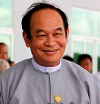
Dr. Myint Htwe is the Union Minister of the Ministry of Health and Sports since 2016. He was graduated with MBBS degree from Institute of Medicine (1) Yangon in 1973 becoming a medical doctor. He attained Diploma in Preventive and Tropical Medicine in 1979 and Master of Public Health from University of the Philippines Systems in 1982. He achieved DrPH (International Health) from John Hopkins University in 1992. He joined the service in University of Medicine (1) Yangon as a demonstrator, and then as a Malariologist, Epidemiologist, In-charge of the Health System Research Unit, and Chief of the International Health Division of the Ministry of Health till 1994. He joined World Health Organization as Regional Advisor in 1994 and finally as Director (Program Management) till 2010.
Dr. Chiho Watanabe
President, National Institute for Environmental Studies, Japan
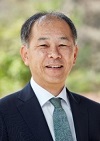
Having background in toxicology and nutrition, he has conducted many experimental and field studies (mostly in Asia) on toxicant-nutrient-life style interactions and their health impacts, including such an interaction between mercury or arsenic and selenium in Asian populations. He has been also engaged in many inter-disciplinary projects/initiatives associated with the issue of sustainability and health; in his recent project, GRENEcoH, in which 'earth' observation, 'human' observation, and 'health' observation data have been combined to solve the challenging issues in the area of ecohealth. He has been serving as president of Society of Health and Human Ecology (JAPAN), vice-president of Society of Human Ecology (international) and was the chair of Human Ecology section in Ecological Society of America.
Prof. Kensuke Fukushi
Vice Director, Institute for Future Initiatives, The University of Tokyo, Japan
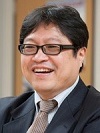
Prof. Fukushi obtained his Bachelor of Engineering and Master of Engineering in Civil Engineering from Tohoku University, Japan in 1989 and 1991 respectively. He received his Ph.D. in Civil Engineering from the University of Utah, U.S.A. in 1996. He joined Tohoku Univ. in 1996 as Research Associate and promoted to be Assistant Professor in 1997. He served as Assistant Professor at Asian Institute of Technology(AIT), Thailand in 1999 and became Associate Professor in 2001. Then he joined Environmental Science Center, The University of Tokyo (UTokyo) as Associate Professor and moved to the Integrated Research System for Sustainability Science, UTokyo in 2005. His research interests include environmental engineering, risk assessment, climate change effect, water resource, biological technology, membrane technology. His research projects cover the integrated climate assessment – risks, uncertainties and society, establishment of research platform for developing models to predict future health risks posed by changes in climate, land use and population, development of international network for sustainability science and on health risk assessment in urban area.
Mr. Naoya Tsukamoto
Director, AIT Regional Resource Centre for Asia and the Pacific, Thailand
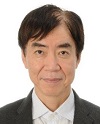
Mr. Naoya Tsukamoto obtained a Master of Environmental Science from Johns Hopkins University, USA in 2005 and a Bachelor of Physics from University of Tokyo, Japan in 1985. He started his professional career at the Ministry of the Environment of Japan in 1985. During 2005-2008, he served as the Head of Japanese Delegation to the IPCC/AR4. During 2014-2016, he worked for the Institute for Global Environmental Strategies (IGES) as Secretary-General/Principal Researcher. During 2016-2018, he serves as Project Director under the United Nations University, Institute for the Advanced Study of Sustainability (UNU-IAS). He is currently Director of Regional Resource Center for Asia and the Pacific (RRC.AP) in Asian Institute of Technology (AIT), Bangkok, Thailand.
Prof. Dr. Zaw Wai Soe
Rector, University of Medicine 1, Yangon, Myanmar
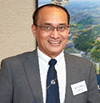
Professor Zaw Wai Soe is the Rector the University of Medicine (1) Yangon since 2015. He also served as the Rector of the University of Medicine (2) Yangon from 2014 to 2015. In April 2018, he was elected as the President of the Rectors' Committee of Myanmar, which comprises 161 Universities and is part of the higher education reform in Myanmar. Professor Zaw Wai Soe obtained M.B., B.S. degree in 1986 from the University of Medicine (2) Yangon and served as a civil assistant surgeon for 3 years in Myingyan District Hospital. He attained M. Med. Sc. (Orthopedics and Traumatology) from University of Medicine, Mandalay in 1995. In 1997, he passed FRCS (Glasgow) examination and worked as an orthopedic registrar in Falkirk Royal Infirmary, Scotland, for 2 years. After arriving back to motherland in 2000, he worked in Orthopedic Department of the Yangon General Hospital, Yangon Orthopedic Hospital and the University of Medicine (1) Yangon. He obtained Dr. Med. Sc. (Ortho) in 2005 and Diploma in Medical Education in 2006. His is one of the key founders of Spine Surgery and Emergency Medicine in Myanmar.
Prof. Kazuhiko (Kazu) Takemoto
Senior Visiting Professor, UNU-IAS / President, Overseas Environment Cooperation Center (OECC)
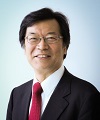
Prof. Takemoto is Senior Visiting Professor of United nations University Institute for the Advanced Study of Sustainability (UNU-IAS) and concurrently a Project Professor of the University of Tokyo, Institute for Future Initiatives (IFI), and Executive Secretary of Sustainable Development Solutions Network (SDSN) Japan. He is also President of the Overseas Environment Cooperation Center (OECC). He was Director of the UNU-IAS from January 2014 through December 2019.
Prior to joining UNU, he developed policies on international environmental cooperation and global environment, in particular, climate change and bio-diversity as Vice-Minister for Global Environment Affairs (2008-2010) and as a Director-General of Environmental Management Bureau (2005-08).
He served for CBD/COP10 as its Alternate President (2010), OECD/EPOC as Vice Chair (2004-07) and UNFCCC/COP3 as Special Assistant to its President (1997). He is a Council Member of the International Institute for Applied Systems Analysis (IIASA).
He holds a PhD in environmental engineering from The University of Tokyo and a Master of International Public Policy degree from the School of Advanced International Studies (SAIS), Johns Hopkins University.
Prof. Shinichiro Ohgaki
Prof. Emeritus, The University of Tokyo, Japan / Former President, Japan Water Research Center / Former President, National Institute for Environmental Studies, Japan
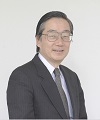
1974 Doctor of Eng. The University of Tokyo (UT) , Japan
1974-1977 Research Associate, Dept. of Civil Eng., Tohoku University, Japan
1977-1989 Associate Prof., Dept. of Urban Eng. UT
(1983-1985) Associate Prof., Asian Institute of Technology (AIT), Thailand
1989-2009 Professor, Dept. of Urban Eng. UT
(2002-2004) Dean Faculty of Engineering, UT
(2006-2008) Vice President, International Water Association (IWA)
2009-2013 President, National Institute for Environmental Studies (NIES)
2013-2019 President, Japan Water Research Center (JWRC)
Prof. Dr. Daisuke Nakajima
Head, National Institute for Environmental Studies, Japan
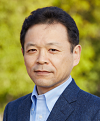
Daisuke Nakajima obtained his Bachelor of Science, Master of Science (M.Sc in Chemistry) and Ph. D in Pharmaceutical Sciences from Tokyo University of Science. He was an Assistant Professor at Faculty of Pharmaceutical Sciences, Tokyo University of Science. Recently, he is a Professor of Graduate School of Pharmaceutical Sciences, Chiba University, Japan. He is one of the Directors of Japan Society for Environmental Chemistry. He is conducting research on grasping hazardous chemical substances in the environment by integrating chemical analysis and bioassay. And he is also conducting research on environmental monitoring methods to be used when chemical substances leak during a disaster.
Prof. Dr. Tin Tin Win Shwe
Senior Researcher, National Institute for Environmental Studies, Japan

Tin Tin Win Shwe obtained her Bachelor of Medicine and Bachelor of Surgery (M.B., B.S) and Master of Medical Science (M. Med. Sc, Physiology) from University of Medicine (1), Yangon, Myanmar. She received her Ph. D in field of Neuroendocrinology from Yokohama City University Graduate School of Medicine, Yokohama, Japan. Previously, she was a Medical Research Officer at Department of Medical Research, Myanmar and former Assistant Lecturer of Department of Physiology, University of Medicine 1, Yangon, Myanmar. Recently, she is a Professor of Graduate School of Life and Environmental Sciences, University of Tsukuba, Cooperative Graduate Program. She is a Director of Society of Indoor Environment, Japan. Her research interest is studying the effects of exposure to environmental chemicals or pollutants on brain and behavior. Currently she is doing collaborative research between NIES and Myanmar Medical Universities.
Prof. Dr. Ohn Mar
Professor and Head, Department of Physiology, University of Medicine 1, Yangon, Myanmar
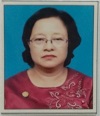
Prof. Dr. Ohnmar is Professor/Head in Department of Physiology, University of Medicine 1, Yangon. She is a chairperson of the Post-graduate Board of Studies (Physiology) for mastery and doctorate course in University of Medicine 1, Yangon and a member of the Post-graduate Board of Studies (Physiology) for mastery and doctorate course in other 4 medical universities in Myanmar. She is also a member of the Research and Ethics committee, University of Medicine 1, Yangon. She has experience in supervision of many master student research and doctoral student research. She is doing a collaborative research with NIES on outdoor as well as indoor air quality assessment in Yangon city and some major cities in Myanmar. She is now doing the air pollution research on health impact and molecular changes on exposure to PM2.5.
Dr. Zaw Lin Thein
Associate Professor, Physiology Department, University of Medicine 1, Yangon, Myanmar
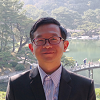
Dr. Zaw Lin Thein achieved MBBS from University of Medicine 1, Yangon in 2001, MMedSc (Physiology) from University of Medicine 2, Yangon in 2007 and PhD (Physiology) degree from University of Medicine 1, Yangon in 2015. He joined the service as a demonstrator at the physiology department of the University of Medicine 2, Yangon and served as assistant lecturer, lecturer and up to associate professor in medical universities under the Ministry of Health and Sports. He also worked as a postdoctoral research fellow in the physiology department of Wakayama Medical University School of Medicine (Japan) from 2016 to 2018. He also takes care of Information Technology in the University of Medicine 1 Yangon since 2016. He is also serving as the general secretary of the Physiology and Biochemistry Society of the Myanmar Medical Association. He is also a member of Organ Donation Innovative Strategies for Southeast Asia (ODISSeA) project funded by European Commission.
Prof. Dr. Myint Myint Nyein
Pro-Rector, University of Medicine 1, Yangon, Myanmar

She got M.B., B.S. from the University of Medicine 1, Yangon, Myanmar in 1986, and joined government service in 1989 as demonstrator, at Pathology Department, University of Medicine 1, Yangon. After serving as Assistant Lecturer and Lecturer in Medical Universities for 14 years, promoted to Associate Professor in 2003 and then to Professor/Head of the Pathology Department at the University of Medicine, Magway in 2008. Served as Professor/Head for 11 years in Medical Universities and affiliated teaching hospitals, and then appointed as Pro-rector (Administration) of University of Medicine 1, Yangon, Myanmar in 2019. Got M. Med. Sc (Pathology) in 1994, WHO Fellowship Training Award in 2004, PhD (Pathology) (with the study of Significance of P53 Tumor Suppressor Gene, BCL-2 Oncoprotein and Ki-67 Proliferation Associated Nuclear Antigen Immunosuppression in Primary Thyroid Tumors) in 2005, and Dip. M.E in 2008. Elected as the President of Myanmar Society of Clinical Pathology, and appointed as Treasurer of Myanmar Society of Heamatology, Myanmar Medical Association for 2017-2019 term and also took part in academic paper publications.
Prof. Dr. Than Htut
Honorary Professor, Preventive and Social Medicine Department, University of Medicine 1; Occupational Health and Environmental Health Department, University of Public Health, Myanmar
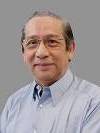
Dr. Than Htut got M.B., B.S. from the University of Medicine 1, Yangon, Myanmar in 1976 and got M. Med. Sc (Occupational Medicine) from National University of Singapore in 1994. In 1995, he was certificated in Air Quality Monitoring (N.E.E.R.I), Nagpur, India. He is a President of Occupational Medicine Society, Myanmar Medical Association, LIVE Environmental Assessment Group, Writers Society, Myanmar Medical Association and a member of Advisory Board of Director, Biodiversity and Nature Conservation Association (BANCA), Global Mercury Assessment Working Group (UNEP Chemicals), Water and Society Working Group, Union of Myanmar National Committee for International Hydrological Programme, Myanmar Water Partnership. He is also a National Program manager of Health City Program (WHO), and Arsenic Mitigation Project (UNICEF).
Mr. Teruyoshi Hayamizu
Research Project Adviser, National Institute for Environmental Studies, Japan
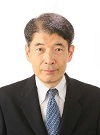
Mr. Teruyoshi Hayamizu is Research Project Adviser at the Center for Health and Environmental Risk Research of National Institute for Environmental Studies (NIES), Japan. He obtained his Master’s Degree in chemical engineering at the Graduate School of the University of Tokyo and started to work at the Environment Agency (present Ministry of the Environment (MOE)) of the Japanese government in 1983. He has worked for about 35 years mainly in the areas of chemicals management, pollution control and environmental impact assessment, including the work at the OECD Secretariat in Paris and the participation in the intergovernmental negotiation for the Minamata Convention on Mercury. He retired from the MOE in 2018 and has been working at NIES since 2019. He is also assigned to Adviser to the MOE and following the international discussion on marine litter and microplastics, future chemicals management framework and implementation of the Minamata Convention.
Dr. Vu Duc Nam
Senior Researcher, Key Laboratory of Dioxin Research, Center for Research and Technology Transfer (Cretech), VAST, Vietnam
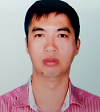
Dr. Vu Duc Nam obtained his Bachelor and Master’s degree from Faculty of Chemistry, Hanoi University of Science, Vietnam National University (VNU), Hanoi, Vietnam. He is currently senior researcher and Head of Key Laboratory for Dioxin Research in Center for Research and Technology Transfer (Cretech) which belongs to Vietnam Academy of Science and Technology (VAST). Dr. Vu Duc Nam has been working on the research and overcoming consequences of Agent Orange/Dioxin in Vietnam for almost ten years. His research topics also cover the environmental pollution and human health impacts of other persistent organic pollutants such as PCBs, PBDEs and PCDD/PCDFs which emitted from industrial activities. Dr. Vu Duc Nam has published a number of researches on such topics in international peer reviewed journals.
Prof. Dr. Aung Myint Maw
Director, Urban Environmental Conservation and Cleansing Environmental Management Authority, Yangon City Development Committee, Myanmar / Visiting Professor at Yangon Technological University, Myanmar
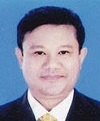
Prof. Dr. Aung Myint Maw is currently worked as Director of Urban Environmental Conservation and Cleansing Environmental Management Authority, Yangon City Development Committee, Myanmar. He obtained Bachelor of Engineering (Mining) from Yangon Technological University and M.Dev.S (Master of Development Study) at 2011 from Yangon Institute of Technology and Ph.D (Environment) on Promoting clean development mechanism from New Age International University. Dr. Maw specializes in Solid Waste Management, Waste Water Management, Ambient Air Quality Management, Hazardous Waste Management and consultant in Environmental Engineering works.
Dr. Cho Cho Thin Kyi
Associate Professor, Civil Engineering Department, Yangon Technological University, Yangon, Myanmar
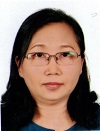
Dr. Cho Cho Thin Kyi obtained Bachelor of Engineering (Civil) from Yangon Technological University and Master of Engineering (Water Resources Engineering) from Asian Institute of Technology, Thailand and Ph.D (Water Resources Engineering) from Yangon Technological University. Currently she has been working as an Associate Professor. She has been conducting lectures in water engineering and water management fields and doing research on Water quality, Environmental flow, urban storm water management, irrigation and integrated water resources management.
Prof. Joyashree Roy
Bangabandhu Chair Professor, EECC/SERD, Asian Institute of Technology, Thailand
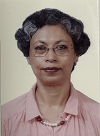
Joyashree Roy is currently Bangabandhu Chair Professor at Asian Institute of Technology, Thailand. She is also a Professor of Economics at Jadavpur University, now on lien. She initiated and continues to be the Founder advisor to the Global Change Programme and SYLFF Project at Jadavpur University. She was Ford Foundation Post Doctoral Fellow at Lawrence Berkeley National Laboratory, Berkeley, USA. She was awarded ICSSR national fellow. She was in the IPCC-2007 Nobel Peace Prize winning panel, has been a chapter author of Global Energy Assessment, she is coordinating lead author of scenario chapter of HIMAP (Hindu Kush Himalayan Monitoring and Assessment Programme). She is in winning team of Prince Sultan Bin Aziz award for water. She has published more than 100 peer reviewed journal articles, authored and edited books. Her research interests are: Economics of Climate Change, Modeling energy demand, Economy-wide modeling exercises for deriving policy implications, Water quality demand modeling, Water pricing, Sustainable development indicator development and estimation, Natural resource accounting, Valuing environmental services, and Developmental and environmental issues relevant for informal sectors, Coastal Ecosystem service evaluation.
Dr. Satoshi Kameyama
Senior Researcher, National Institute for Environmental Studies. JAPAN
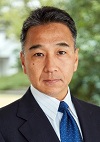
Dr. Satoshi kameyama is a senior researcher at Centre for Environmental Biology and Ecosystem, NIES-JAPAN. He is a research professor at The Kyoto University C-PIER and a lecturer at The University of Tokyo The Graduate School of Agriculture and Life Science in 2018. He is also working as visiting lecturer at VNU (Vietnam Japan University) in Hanoi. He received Ph.D. degrees from The Graduate School of Agriculture from The Hokkaido University in 1999. He is an editorial board member of The Remote Sensing Society of Japan from 2011. The main research topics of recent years are “Evaluation of ecosystem functions and services and their sustainable use” and “Watershed ecosystem restoration based on the recovery of migration pass and diadromous fish habitat using Environmental DNA” etc. The final goal (the dream) of his research is to realize sustainable regional community with high resilience to climate change harmonizing with nature.
Dr. Manabu Onuma
Senior Researcher, National Institute for Environmental Studies, Japan
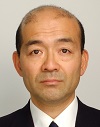
Dr Manabu Onuma is a senior researcher belonging to Center for Environmental Biology and Ecosystem at National Institute for Environmental Studies (NIES), Japan. His research fields are infectious/parasitic diseases of wildlife, conservation genetics and wildlife forensic. His current interest is the host-pathogen interaction on avian influenza. And he is in charge of managing a genetic resource bank for endangered species in Japan. Genetic resources collected from around 100 species were cryopreserved in NIES cryopreserving facilities called the Time Capsule Building since 2002. He is trying to expand the genetic resource banking project to other country in Asian region, especially Southeast Asia. Because most of the part of Southeast Asia is categorized as biodiversity hotspots.
Dr. Qinxue Wang
Principal Researcher, National Institute for Environmental Studies, Japan
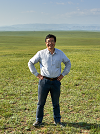
Dr. Qinxue WANG is a Principal Researcher in Center for Regional Environmental Research, National Institute for Environmental Studies (NIES), Japan. His research interests are to establish an early detection network by both ground and satellite observation through collaboration with national and international organizations, and to develop a model of water and material cycles for assessing how human-induced changes in climate change and land use/cover change affect water cycles (e.g. water shortages, floods) and material cycles (e.g. carbon and nitrogen cycles) in East Asia. He is now leading research projects on the evaluation of environmental vulnerabilities and adaptation strategies for pasture in arid and semi-arid regions.
Dr. Yayoi Takeuchi
Senior Researcher, National Institute for Environmental Studies, Japan
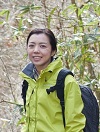
Yayoi Takeuchi studies on plant ecology, empirical and theoretical community ecology, and biodiversity conservation. Her main field site is Southeast Asian tropical forests, where are the biodiversity hotspots in the world. She is interested in ecological and sociological consequences of biodiversity and is trying to investigate how biodiversity and ecosystem services can be secured in a human-modified landscape. The current project explores the roles of global PA networks towards the formulation of an effective biodiversity conservation strategy.
Dr. San Win
Deputy Director,Climate Change Division, Environmental Conservation Department, Ministry of Natural Resources and Environmental Conservation, Myanmar

Deputy Director at Climate Change Division, Environmental Conservation Department, MONREC, Nay Pyi Taw, Myanmar (present). Assistant Director at Climate Change Division, ECD, MONREC, Nay Pyi Taw, Myanmar at present. Assistant Director at ECD, MONREC, Rakhine State, Myanmar (from March 2016 – Apr 2019) during Ph. D study period in Thailand. Coordination consultant (Desk base) for Ozone Unit, UNEP, Bangkok (Aug 2017 Apr 2018). Work at Climate Change Division, ECD since Oct 2012. Staff Officer at Forest Department, MONREC from July 2007 to Oct 2009. Forestry Extensionist for Participatory Integrated Mangrove Management Project in Wunbaik Reserved Forest, FAO, Myanmar (Feb 2011 – Apr 2011). Staff Officer at Dry Zone Greening Department, MONREC, Wundwin Township, MeikHtila District, Mandalay Region, Myanmar (May 2004 – Jul 2007). Range Officer at Forest Department (FD) of Dawei Township (Sept 2001 – May 2004), Bago Township (Sep 1998 – Sept 2001). Range Officer at FD project “Watershed Management and Popa Mountain Reforestation at Eastern site (A) Popa Mountain Park, Myingyan District Watershed Mountain Area Management National Project, Myingyan District, Mandalay Region, Myanmar (Jul 1996 – Sept 1998) and FD-FAO-UNDP joint project “Three Critical Areas Watershed Management Project (MYA/93/005) (Sept 1994 – July 1996).
Dr. Oleg Shipin
Associate Professor, Asian Institute of Technology, Thailand

Dr. Oleg Shipin is an Associate Professor at AIT, since 2003. With a strong background in environmental and ecological engineering, he is an international expert in water and wastewater management and environmental impact assessment. Dr. Shipin has undertaken international projects supported by UNEP, British Council, World Bank, USAID, CIDA, SIDA, UNIDO, JICA, etc. Engaged in climate change issues and recycling & systems management for sustainable development he has published more than 100 articles in peer-reviewed international journals, conference proceedings and book chapters. Having received Ph.D. in Ecological Microbiology in Moscow (1986) he moved over to South Africa to do research in prominent universities and advise to infrastructure development & consulting companies on global water and waste issues. To date he has supervised numerous doctoral and master students from all continents. Good knowledge of global geographic, ethnic, zoological and botanical diversity informs his extensive experience in developing and developed communities on as many as six continents of the planet.
Dr. Hiroyuki Katayama
Professor, The University of Tokyo, Japan
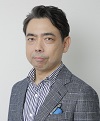
He has been interested in health-related water microbiology focusing on virus detection, water/wastewater treatment and risk management. He has conducted research on development of virus concentration method, disinfection and survey on occurrence of viruses in water in Japan and Southeast Asian countries. Chair (2017-2019) of IWA Specialist group on Health-related water microbiology, Board member (2011- ) of Food and Environmental Virology Society
Prof. Tsuyoshi Fujita
Director, National Institute for Environmental Studies, Japan
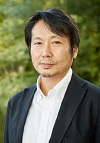
Prof. Tsuyoshi Fujita is a Director for Center for Social and Environmental Systems Research at National Institute for Environmental Studies (NIES), Japan. He is also an alliance professor of Nagoya University. He is a member of National Infrastructure Development Council of the Ministry of Construction and Transportation and holds chairman jobs in a number of national committees by the Ministry of Environment of Japan and a Committee member of National Eco-Model City Promotion Committee by the National Cabinet Office. His research fields are eco industrial development, low carbon city, urban environment simulation system, circular economy planning and spatial LCA, where he has published more than one hundred fifty journal papers. He has led thirteen national research projects in the fields to develop integrative urban technology and policy simulation systems. He got a doctoral degree from Tokyo University, after a Master of City Planning degree from the University of Pennsylvania after graduated from Tokyo University.
Prof. Akimasa Sumi
Professor Emeritus, The University of Tokyo / Project Professor, The University of Tokyo Institute for Future Initiatives, Japan
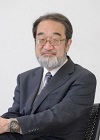
He was born in 1948 at Gifu City. He entered the University of Tokyo in 1967 and graduated from the department of Physics in 1971. After a two-year master course, he joined the Japan Meteorological Agency. He got a D.SC from UT in 1985 and moved to UT as an associate professor in the department of geophysics. In the University, he was engaged in many research fields, such as ENSO related research, and model development projects. He established CCSR (Center for Climate System Research) in 1991 and also engaged in Sustainability Science Project in 2001. He retired in 2013 and now is a Professor Emeritus. He is a former President of the National Institute of Environmental Studies (NIES).
Dr. Ikuro Kasuga
JICA Expert, Master Program in Environmental Engineering, Vietnam Japan University, Vietnam / Associate Professor, Dept. of Urban Engineering, School of Engineering, The University of Tokyo, Japan
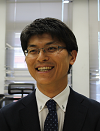
Dr. Ikuro Kasuga is an associate professor in Department of Urban Engineering, School of Engineering, The University of Tokyo, Japan. He obtained his Ph.D on the relationship between dissolved organic matter and bacterial community in a source water from The University of Tokyo in 2005. Since 2006, he has worked at the University of Tokyo. His research interests include biological drinking water treatment, control of bacterial regrowth in premise plumbing, antibiotic microbial resistance in water environment, microbial loop in a lake environment, and characterization of dissolved organic matter by high resolution mass spectrometry. Since September in 2018, he has been dispatched to Vietnam Japan University in Hanoi as a JICA expert to support Master’s Program in Environmental Engineering.
Dr. Masahiro Sugiyama
Associate Professor, Institute of Future Initiatives, The University of Tokyo, Japan
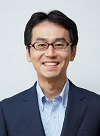
Masahiro Sugiyama is an Associate Professor at the Institute for Future Initiatives (IFI), the University of Tokyo (UTokyo). He holds a Ph.D. in climate science and a master’s degree in technology and policy, both from MIT. Prior to joining UTokyo, he was a researcher at the Socio-Economic Research Center, the Central Research Institute of the Electric Power Industry. He joined UTokyo in April, 2014. An expert on global warming, he has worked on various topics related with climate change, ranging from energy efficiency in global scenarios to citizens’ views on climate geoengineering. His works have been published in various academic journals, including Nature (http://doi.org/10.1038/531029a) and PNAS (https://doi.org/10.1073/pnas.0903186107).
Dr. Marcin Pawel Jarzebski
Project Researcher, Institute for Future Initiatives, The University of Tokyo, Japan & Science Officer, Future Earth Global Hub, Japan
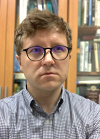
Marcin Pawel Jarzebski obtained his PhD from in Sustainability Science and Natural Environmental Studies at the University of Tokyo. He currently works on the food security effects of industrial crop expansion in Sub-Saharan Africa, and climate change adaptation capacity development processes in Southeast Asia. For his previous work he was engaging GIS systems for biomass estimation and loss over the time in the protected areas in Poland (Nicolaus Copernicus University); and GIS application to disaster management in the flood-prone areas of informal settlements in Manila, Philippines (The University of the Philippines). His main interests are climate change adaptation, community resilience, community forestry, heat stress on human health, disaster management, GIS, scientific network management. Currently he also work as a Science Officer of Future Earth Global Hub, Japan.
Dr. Min Thein
Director, Department of Disaster Management, Ministry of Social Welfare, Relief& Resettlement, Myanmar
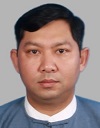
Dr. Min Thein is Director for Humanitarian Assistance/ Disaster Management working in the National Disaster Management Organization (Department of Disaster management) of Myanmar. His background is medical doctor specializing in Public Health. He has worked for disaster management, environment sanitation& WASH, food safety& nutrition, community health, communicable disease control, vector borne disease control, public health administration and health economic fields for nearly fourteen years. He got his first degree, Bachelor of Medicine and Bachelor of Surgery (M.B, B.S), from Defence Services Medical Academy in 2001. Later on, he joined in country master programme, Master of Medical Science (Public Health), at University of Medicine and graduated in 2005. The most recent academic achievement is graduation of European Master of Science in International Health (M.Sc. IH) from University of Amsterdam and University of Copenhagen (Joint Master Degree) with Erasmus Mundus Scholarship in 2015. His wife is Nursing Officer (Deputy Matron) and has one son.
Mr. Kyaw Myo Linn
Assistant Director, Environmental Conservation Department, Ministry of Natural Resources and Environmental Conservation, Myanmar
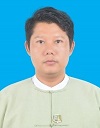
Mr. Kyaw Myo Linn is an Assistant Director at climate change division of Environmental Conservation Department under Ministry of Natural Resources and Environmental Conservation. His educational background is Forestry Science and graduated bachelor degree from University of Forestry (Myanmar) and master degree was obtained from Beijing Forestry University. He is currently a practitioner in the area of climate actions and doing some climate change mitigation and adaptation projects as an in charge. He has two years experience in Climate Change matters and attended to COP 24 and COP 25 meetings of United Nations Framework Convention on Climate change.
Dr. Vilas Nitivattananon
Associate Professor, Asian Institute of Technology, Thailand
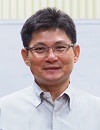
Dr. Vilas Nitivattananon is an Associate Professor of Urban Environmental Management Program under School of Environment, Resources and Development, Asian Institute of Technology (AIT). He is also a Visiting Faculty of Ho Chi Minh City University of Technology, Vietnam and also of Xiamen University in China. He has a strong background in engineering, economics and systems management, with a focus on urban environmental management and infrastructure development. Experienced on climate adaptation, waste management and sustainable development, he has extensively managed projects from conception to completion and conducted integrated or multi-disciplinary researches for international, regional and local projects - including supported by UNEP, UNESCAP, WB, ADB, USAID, CIDA, MOFAID, MRC, and JICA, etc. He is editorial board member of several international journals, and has published more than 100 articles in peer-reviewed international journals and conference papers and book chapters.
Prof. Sivanappan Kumar
Professor, Asian Institute of Technology, Thailand
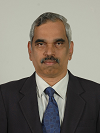
Sivanappan Kumar is Professor at the Energy Program, Asian Institute of Technology (AIT). In his academic career of nearly three decades, he has been involved in teaching, student research supervision, research, training, and outreach in the areas of renewable energy resources and technologies, climate change and greenhouse gas mitigation, and energy and sustainable development. He also has held senior administrative positions at AIT. Additional details are available at faculty.ait.asia/kumar
-
Keynote Speech
-
Prof. Dr. Zaw Wai Soe (Rector, UM1)
-
Advancing Policy-relevant Research for Achieving the SDGsProf. Kazuhiko Takemoto (Senior Visiting Professor, United Nations University Institute for the Advanced Study of Sustainability (UNU-IAS) / President, Overseas Environmental Cooperation Center (OECC))
-
Prof. Shinichiro Ohgaki (Prof. Emeritus, UTokyo / Former President, Japan Water Research Center / Former President, NIES)
-
Session 1
-
Connecting Various Issues With Planetary HealthDr. Chiho Watanabe (NIES)
-
Prof. Dr. Than Htut (University of Public Health, Yangon, Myanmar)
-
Mr. Teruyoshi Hayamizu (NIES)
-
Prof. Dr. Ohn Mar (UM1)
-
Dr. Vu Duc Nam (Vietnam Academy of Science and Technology)
-
Solid Waste Management in Yangon CityProf. Dr. Aung Myint Maw (Yangon City Development Committee)
-
Dr. Cho Cho Thin Kyi (Yangon Technological University)
-
Prof. Joyashree Roy (AIT RRC.AP)
-
Session 2
-
Dr. Satoshi Kameyama (NIES)
-
Dr. Qinxue Wang (NIES)
-
Effectiveness of Protected Areas in Preventing Forest Habitat Loss of Terrestrial SpeciesDr. Yayoi Takeuchi (NIES)
-
Mangrove Status, Its ecosystem, and Climate Change in Myanmar: A Study in Ayeyarwaddy Delta Coastal ZoneDr. San Win (Climate Change Division Environmental Conservation Department Ministry of Natural Resources and Environmental Conservation, Myanmar)
-
Climate Change and its Impact on HealthProf. Dr. Kyi Kyi Thinn (UM1)
-
Understanding and Protecting Stressed Wetland Ecosystems from Climate Change and Human Pressures across MyanmarDr. Oleg Shipin (AIT RRC.AP)
-
Microbial Safety in Water ReuseDr. Hiroyuki Katayama (UTokyo)
-
Dr. Manabu Onuma (NIES)
-
Session 3
-
Prof. Akimasa Sumi (IFI, UTokyo)
-
Climate Change: Challenges and OpportunitiesProf. Kensuke Fukushi / Dr. Martiwi Diah Setiawati (IFI, UTokyo)
-
Mr. Kyaw Myo Linn (Environmental Conservation Department, Ministry of Natural Resources and Environmental Conservation, Myanmar)
-
Prof. Kumar Sivanappan (AIT RRC.AP)
-
Integrative Research for SDGs Future Cities and RegionsProf. Tsuyoshi Fujita (NIES)
-
Towards Sustainable Energy in MyanmarDr. Masahiro Sugiyama (IFI, UTokyo)
-
Investing for Disaster Risk Reduction to Achieve Sustainable Development Goals of MyanmarDr. Min Thein (Department of Disaster Management, Ministry of Social Welfare, Relief and Resettlement, Myanmar)
-
Dr. Ikuro Kasuga (JICA Expert, Vietnam Japan University / UTokyo)
-
Integrated Assessment Approach for Synergies of SDGs in Metropolitan RegionsDr. Vilas Nitivattananon (AIT RRC.AP)
-
Working towards achieving SDGs through forestry – Case of Community-Based Forest Management in the PhilippinesDr. Marcin Pawel Jarzebski (IFI, UTokyo)
-
Public Talk
-
Prof. Dr. Hla Hla Win, Rector, University of Public Health, Yangon, Myanmar
-
Prof. Akimasa Sumi, The University of Tokyo, Japan
-
(Data on page. 7 have been corrected on March 5, 2020.)
Mr. Teruyoshi Hayamizu, NIES, Japan -
Introduction of Molecular Species Identification to Control Illegal Wildlife Trade: Case Studies in Japan from 2012 to 2018Dr. Manabu Onuma, NIES, Japan
-
Ms. Thiri Maung, Deputy Director, Emergency Operation Center,Ministry of Social Welfare, Relief and Resettlement, Myanmar
Schedule of Flash Poster Presentation
-
Day 1Heavy Metals (P1-P8) Air Pollution (P9-P23) Plastics (P24-P25) Pesticides and Agriculture (P26-P30)
-
Day 2Water and Ecosystem (P31-P40) Occupational Hazards (P41-P46) Sustainability and SDGs (P47-P54)
Heavy Metals
-
Soe Minn Htway, University of Medicine-Magway, Magway, Myanmar
-
Kyaw Thet Naing, University of Medicine 2, Yangon, Myanmar
-
Muyar Win Thu, University of Medicine 1, Yangon, Myanmar
-
Wynn Htut Aung, Mahidol University, Thailand
-
Khin Phyu Phyu, Department of Medical Research, Yangon, Myanmar
-
P6. Approach to Assessment of Heavy Metals Contamination in Drinking Water, Mandalay Region, MyanmarAye Min Maw, Department of Medical Research, Yangon, Myanmar
-
Kyi Mar Wai, Hirosaki University, Japan
-
P8. Estimation of Effects of Intervention in Heavy Metal Concentrations on Aquatic Insects in the FieldKazutaka Takeshita, National Institute for Environmental Studies, Japan
Air Pollution
-
Qian Tang, Nanjing Agricultural University, Nanjing, China
-
Dan Shen, Nanjing Agricultural University, Nanjing, China
-
Hideko Sone, Yokohama University of Pharmacy, Japan
-
Win Yu Aung, University of Medicine 1, Yangon, Myanmar
-
Ei Ei Pan Nu Yi, University of Medicine 1, Yangon, Myanmar
-
Nay Chi Nway, University of Medicine 1, Yangon, Myanmar
-
Cherry Maung, University of Medicine 1, Yangon, Myanmar
-
Zarli Thant, University of Medicine 1, Yangon, Myanmar
-
Khine Zar Swe, University of Medicine 1, Yangon, Myanmar
-
Zaw Ye Aung, Defence Services Medical Academy, Yangon, Myanmar
-
Nan Wit Yi Tun, University of Medicine 1, Yangon, Myanmar
-
Akihiro Fushimi, National Institute for Environmental Studies, Japan
-
Takehiro Suzuki, National Institute for Environmental Studies, Japan
-
Zaw Lin Thein, University of Medicine 1, Yangon, Myanmar
-
Ei Ei Mon, Kumamoto University, Kumamoto, Japan
Plastics
-
Ei Ei Mon, Kumamoto University, Kumamoto, Japan
-
Ei Ei Htway, Department of Medical Research (Pyin Oo Lwin Branch), Myanmar
Pesticides and Agriculture
-
Mya Pwint Phyu, University of Medicine-Magway, Magway, Myanmar
-
Thurein Zaw, University of Medicine-Magway, Magway, Myanmar
-
Myo Thet Oo, University of Medicine-Magway, Magway, Myanmar
-
Win Min Oo, University of Medicine-Magway, Magway, Myanmar
-
Chan Thar Aye, University of Medicine-Magway, Magway, Myanmar
Water and Ecosystem
-
Esther Ro Hniang, Yangon Technological University, Yangon, Myanmar
-
Jue Jue, Yangon Technological University, Yangon, Myanmar
-
Hein Htet Aung, Yangon Technological University, Yangon, Myanmar
-
Preeyaporn Koedrith, Mahidol University, Thailand
-
Mya Mya Aye, Department of Medical Research, Yangon, Myanmar
-
P36. Fecal Pollution Monitoring of Aquatic Environment in MyanmarHaruhiko Nakata, Kumamoto University, Kumamoto, Japan
-
May Pyone Kyaw, University of Medicine 2, Yangon, Myanmar
-
P38. Profiling Fecal Pollution in Rivers in Hanoi, Vietnam, by Host-specific Bacteroidales and crAssphage markersMinh Ngoc Pham, Vietnam Japan University, Vietnam
-
P39. Prevalence of Plasmid-mediated Colistin Resistance Gene mcr-1 in Domestic WastewaterThi My Hanh vu, Vietnam Japan University, Vietnam
-
Honour Oladele, Vietnam Japan University, Vietnam
Occupational Hazards
-
Han Ni, University of Medicine-Mandalay, Mandalay, Myanmar
-
Yu Mon Theint, University of Medicine-Mandalay, Mandalay, Myanmar
-
Haymar Soe Win, University of Medicine 1, Yangon, Myanmar
-
Thet Wai Oo, Defence Services Medical Academy, Yangon, Myanmar
-
Aung Khin Zaw, Defence Services Medical School, Yangon, Myanmar
-
Kaung Su Lin, Defence Services Medical Academy, Yangon, Myanmar
Sustainability and SDGs
-
Asumi Ono, National Institute for Environmental Studies, Japan
-
Han Hoang, National Institute for Environmental Studies, Japan
-
Hiroki Kitamura, National Institute for Environmental Studies, Japan
-
P50. Recovery of Antimony Trioxides from Liquid Phase by Microbial Antimonate ReductionShigeki Yamamura, National Institute for Environmental Studies, Japan
-
Hironori Toyama, National Institute for Environmental Studies, Japan
-
Lu Gao, National Institute for Environmental Studies, Japan
-
P53. How to Measure the Effectiveness of Compact City Policy on Electricity Consumption? -A Method to Assess the Impact of the Spatial Concentration of Households on Hourly Electricity Consumption-Yuki Hiruta, National Institute for Environmental Studies, Japan
-
Yujiro Hirano, National Institute for Environmental Studies, Japan
Best Poster Award
Public talk
Recent Environmental Issues faced in Asian countries
-
Date and Time:January 23, 2020, 9:00-12:00
-
Venue:Novotel Yangon Max Hotel, Myanmar
-
Organizers
- University of Medicine 1, Yangon (UM1- Myanmar)
- National Institute for Environmental Studies (NIES - Japan)
-
Chairpersons
- Prof. Dr. Than Htut (University of Public Health)
- Prof. Dr. Tin Tin Win Shwe (NIES)
PROGRAM
-
9:00-9:05 Opening speechDr. Chiho Watanabe, President, NIES, Japan
-
9:05-9:35 Disaster Prevention in MyanmarProf. Dr. Hla Hla Win, Rector, University of Public Health, Yangon, Myanmar
-
Prof. Akimasa Sumi, The University of Tokyo, Japan
-
10:05-10:20 Coffee Break
-
10:20-10:50 Development of Air Pollution Control Framework in Japan and Cooperation
with Asian Countries
(Data on page. 7 have been corrected on March 5, 2020.)Mr. Teruyoshi Hayamizu, NIES, Japan -
10:50-11:20 Introduction of Molecular Species Identification to Control Illegal Wildlife Trade:
Case Studies in Japan from 2012 to 2018Dr. Manabu Onuma, NIES, Japan -
11:20-11:50 Natural Disaster Emergency Management in MyanmarMs. Thiri Maung, Deputy Director, Emergency Operation Center,
Ministry of Social Welfare, Relief and Resettlement, Myanmar
-
11:50-11:55 Wrap up by Chairpersons
-
11:55-12:00 Closing speechProf.Dr. Zaw Wai Soe, Rector, UM1, Myanmar
-
January 21 – 22, 2020, at Novotel Yangon Max Hotel, Yangon, Myanmar
-
January 23 – 24, 2019, at Pan Pacific Hanoi, Vietnam
-
January 23 – 24, 2018, at Seri Pacific Hotel, Malaysia
-
January 26 – 28, 2017, at Udayana University, Indonesia
-
January 27 – 28, 2016, at Asian Institute of Technology, Thailand
